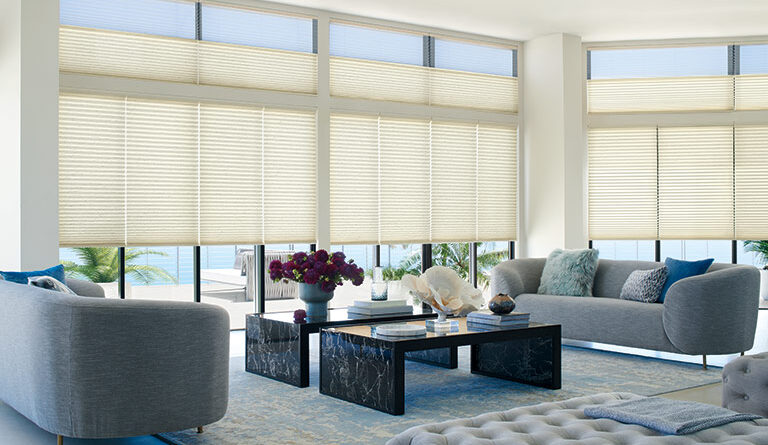How Window Shades Can Improve Comfort and Energy Efficiency
Windows play a vital role in a home’s overall comfort and energy efficiency. While they allow natural light to brighten up a space, they can also be a source of unwanted heat loss in the winter and excessive heat gain in the summer. Installing Window Shades is an effective way to enhance your home’s insulation, regulate indoor temperatures, and create a more comfortable living environment.
This article explores how window shades contribute to energy efficiency, the different types available, and tips for selecting the best option for your home.
The Role of Window Shades in Energy Efficiency
Window shades act as a barrier between the indoor environment and external weather conditions. During the summer, they block out excessive sunlight and reduce heat gain, keeping rooms cooler and reducing reliance on air conditioning. In the winter, they help retain indoor warmth by preventing heat from escaping through windows, lowering heating costs.
The U.S. Department of Energy estimates that around 30% of a home’s heating energy is lost through windows, while in warmer months, up to 76% of sunlight entering through standard windows becomes heat. By using the right window treatments, homeowners can significantly reduce energy consumption and create a more comfortable living space.
Types of Energy-Efficient Window Shades
Choosing the right type of window shade can maximize energy savings while complementing your home’s aesthetic. Below are some of the best energy-efficient options:
1. Cellular Shades
Cellular shades, also known as honeycomb shades, are one of the most energy-efficient window coverings available. Their unique honeycomb structure traps air, creating an insulating layer that helps maintain indoor temperatures. These shades come in single, double, and even triple-cell designs, with more cells providing better insulation.
Best for: Homes in extreme climates looking to reduce heating and cooling costs.
2. Solar Shades
Solar shades are designed to block harmful UV rays while maintaining visibility to the outside. They prevent excessive heat buildup in the summer while still allowing natural light to enter the room. These shades come in different levels of openness, with lower percentages blocking more sunlight and providing greater energy efficiency.
Best for: Living rooms, sunrooms, and offices where natural light is needed but heat gain needs to be minimized.
3. Roman Shades
Roman shades offer both style and functionality. Made from thick fabric, they provide excellent insulation by reducing heat transfer through windows. Lined Roman shades, in particular, enhance energy efficiency by offering an extra layer of protection against temperature fluctuations.
Best for: Bedrooms and living spaces where a balance of elegance and insulation is desired.
4. Roller Shades
Roller shades are a sleek and simple option that can help regulate indoor temperatures. When made with insulating or blackout materials, they effectively block heat and provide better energy efficiency.
Best for: Minimalist interiors and rooms requiring effective light control.
5. Bamboo or Woven Wood Shades
Natural woven shades, made from bamboo or wood, offer moderate insulation while adding a warm, organic feel to a space. Pairing them with a liner enhances their energy efficiency by reducing heat loss and blocking excessive sunlight.
Best for: Eco-friendly homes and rustic or bohemian-style interiors.
Additional Benefits of Window Shades
1. Enhanced Comfort
Window shades help maintain a consistent indoor temperature, reducing hot and cold spots. This creates a more comfortable environment throughout the year, whether it’s preventing sun glare in the summer or keeping warmth inside during winter.
2. UV Protection
Prolonged exposure to sunlight can cause fading and damage to furniture, flooring, and artwork. Many window shades, especially solar and blackout shades, protect interiors by blocking harmful UV rays.
3. Privacy Control
Shades offer various levels of privacy, from sheer options that diffuse light to blackout shades that provide complete seclusion. This makes them ideal for bedrooms, bathrooms, and street-facing windows.
4. Noise Reduction
Thicker window shades, such as cellular and Roman shades, help absorb sound and reduce outside noise. This is especially beneficial for homes in busy urban areas or near high-traffic streets.
Tips for Choosing the Right Window Shades
Selecting the right window shades depends on several factors, including climate, home decor, and energy-saving goals. Here are some tips to help make the best choice:
- Consider Your Climate: In colder regions, insulated cellular shades are ideal, while solar shades work best in warmer climates to block heat gain.
- Look for Energy Ratings: Some window shades come with energy performance ratings that indicate their efficiency in reducing heat transfer.
- Opt for Motorized Shades: Smart or motorized shades allow homeowners to automate adjustments based on the time of day, improving energy savings.
- Choose the Right Opacity: Sheer shades allow natural light while providing some insulation, whereas blackout shades offer maximum temperature control and privacy.
- Layer Window Treatments: Combining shades with curtains or drapes adds extra insulation and enhances energy efficiency.
Installation and Maintenance Tips
Proper installation and maintenance ensure that window shades function effectively and last longer. Here’s how to keep them in top condition:
- Install Shades Close to the Window Frame: This minimizes gaps where air can escape, improving insulation.
- Use Reflective Backings for Sun-Facing Windows: Light-colored or reflective shades help deflect heat, keeping interiors cooler.
- Regular Cleaning: Dust and debris can accumulate on fabric shades, reducing their effectiveness. Regularly vacuum or wipe them down to maintain performance.
- Adjust Shades According to the Season: In summer, lower shades during the hottest parts of the day to block heat. In winter, raise them during sunny periods to let in warmth and lower them at night to retain heat.
Conclusion
Window shades are a practical and stylish way to improve both comfort and energy efficiency in a home. By reducing heat gain in summer and preventing heat loss in winter, they help lower energy costs while maintaining a pleasant indoor environment. With various styles available, including cellular, solar, and Roman shades, homeowners can find the perfect balance of insulation, privacy, and aesthetics. Investing in high-quality, energy-efficient window shades is a smart choice for creating a more sustainable and comfortable living space.




